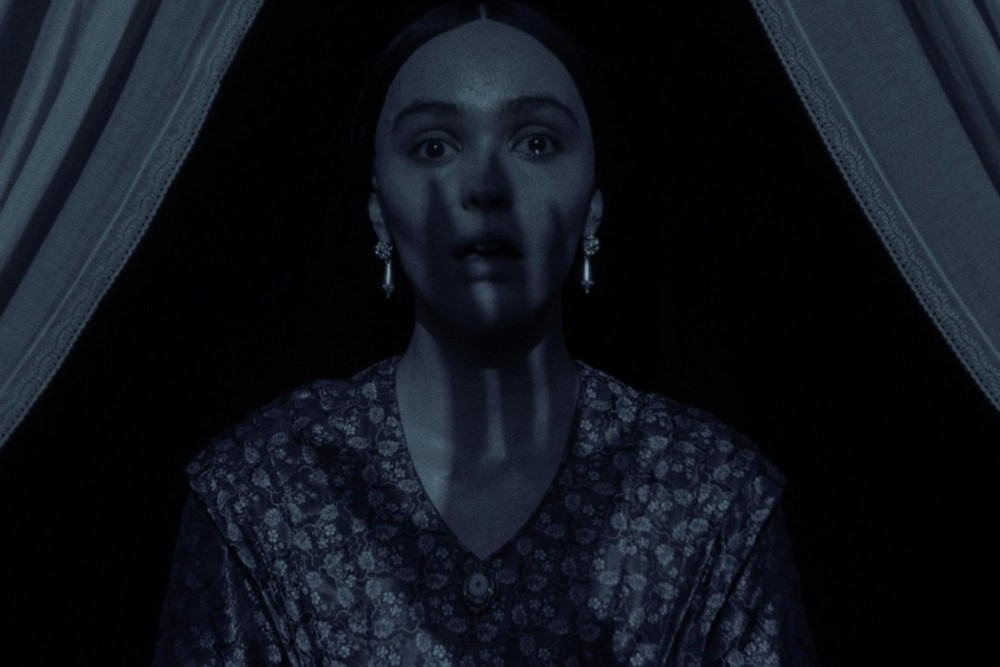Nosferatu and the horror of enlightenment
Robert Eggers’s film reminds us that much of what presents itself as common sense is just a contingent arrangement, one form of folklore instead of another.

Lily-Rose Depp in Nosferatu (Photo: Focus Features)
“Do you ever feel at times as if you’re not a person?” German woman Ellen Hutter (Lily-Rose Depp) says to her best friend Anna (Emma Corrin) in an early scene of Nosferatu (directed by Robert Eggers). “Someone or something,” she continues, “had the power to breathe life into you, to move you.” Anna has clearly never felt this way, and she looks both concerned and unsettled. Maybe, she suggests hopefully, this is the expansive love of God filling Ellen’s heart?
“What I wish to say,” Ellen explains, “is that you’re not truly present, nor alive, as if you’re at the whim of another, like a dog?” This is a theological bridge too far, and Anna quickly suggests they return home from their seaside walk, worried that Ellen is succumbing to another fit of hysteria and melancholy, like so many other sensitive 19th-century women.
Ellen has been left with Anna and her husband, Friedrich (Aaron Taylor-Johnson), while her husband, Thomas (Nicholas Hoult), is sent to Transylvania to execute a real estate deed deep in the mountains with Count Orlok (Bill Skarsgård). Unfortunately for Ellen and everyone around her, her pure spirit, uniquely attuned to the spiritual currents of the world, has awoken the obsession of Nosferatu, the ancient vampiric form of Death itself, who abides in the count’s decaying body. It isn’t long before everyone around Ellen—and indeed most of the city—falls prey to his malevolence. Whether he can be stopped rests on the paradox Ellen feels in her soul: What kind of agency does she have against the boundless appetite of death?





